Parliamentary news
Michelle Donelan responded to oral questions within the chamber this week. They covered low-quality university courses (including in relation to disadvantaged access) and non-disclosure agreements. Research Professional (RP) has an interesting write up on low quality courses in the playbook. They note how few (41) courses don’t meet the quality threshold and that Russell Group institutions are among those courses. With so few courses of concern the Government’s campaign to prevent this low quality seems more bark than bite. In fact, RP note:
- Given how many degree courses are on offer across the country —50,000…only 41 in England dip below both a 75% completion rate and a 60% progression rate. More would be captured with a progression metric of 80%, but not so many as to make you think there was a problem that required the full regulatory machinery of the OfS and the political muscle of ministers at the Department for Education.
- It is hard to imagine that the near 50% non-repayment rate of the student loan book is the result of poor student outcomes on those 41 degree courses. It is also hard to imagine that the OfS will ever have to make a regulatory intervention at the universities where they are taught.
- …the most likely fate for degree courses that fail to live up to OfS-mandated thresholds is that they will simply be pulled. No university management team worth its salt would allow one or two courses to threaten institutional reputation or access to the student loan book…The most likely result of outcome thresholds will therefore be departmental closures and staff redundancies.
Parliamentary question: Student outcomes approach
Next Donelan tacked HE freedom of speech including a mention on the balance between respect for religious values and freedom of speech. Free speech was also touched upon during the Topical Questions when Jonathan Gullis (Conservative) lamented that the ‘wokerati’ complained and tried to silence a professor’s comments. There is also a freedom of speech parliamentary question.
During the topical questions John Penrose (Conservative) called on Alex Burghart (Education Under-Secretary) to: discuss the universal accreditation scheme proposed in my recently published “Poverty Trapped” paper…It would mean that universities and colleges could give credit for knowledge and skills gained not just in formal education but in work or informal settings, to make it easier, cheaper and faster to switch careers and to level up opportunities so that everyone has a better chance to succeed Burghart responded that FE providers can use discretion, there was no mention of HE.
On Wonkhe: Nadhim Zahawi wants school leavers to get detailed data on in-person teaching, rather than “vague intentions”. Jim Dickinson interprets the signals.
Growth Business Council: Wonkhe – The Prime Minister has launched a new business council to support the government’s Plan for Growth. The Secretary of State for Education will have a standing position on the council to focus on the skills element of the plan, alongside the business and trade secretaries.
Levelling Up
Last week’s big, and long anticipated policy announcement, the levelling up white paper, got a bit lost in the politics of the moment and the big geopolitocal stories. Has the extra time taken the reason it is so big? Or, as less kind commentators have said, is it so big to disguise the thinness of the policy initiative?. More than a third of the 300 pages is data analysis, and even in the policy sections there’s a lot of waffle and reviewing of previous initiatives to justify the new approach – 12 big “missions for 2030”. A lot of the policy stuff is in the “things we are already doing or have announced before” box. We appreciated the jaunty red, white and blue colour scheme, too.
We are promised more detail on implementation.
I’m using page numbers from the web version below not the printed page numbers. There’s really very little in here for Dorset – apart from being an Educational Investment Area. There’s a summary of what they are already doing in the South West from page 314, including the investment from the Towns Fund in regenerating Boscombe.
What is it all about – you have to look at page 120 for the logic.
You can read the “12 missions” at the end of the web page. They include on reading, writing and maths at primary school and this on skills:
- By 2030, the number of people successfully completing high-quality skills training will have significantly increased in every area of the UK. In England, this will lead to 200,000 more people successfully completing high-quality skills training annually, driven by 80,000 more people completing courses in the lowest skilled areas.
And this on R&D funding:
- By 2030, domestic public investment in Research & Development outside the Greater South East will increase by at least 40% and at least one third over the Spending Review period, with that additional government funding seeking to leverage at least twice as much private sector investment over the long term to stimulate innovation and productivity growth
- The White Paper also announces 3 new Innovation Accelerators, major place-based centres of innovation, centred on Greater Manchester, the West Midlands, and Glasgow-City Region. These clusters of innovation will see local businesses and researchers in these areas backed by £100 million of new government funding
And on devolution:
We will invite the first 9 areas to agree new county deals and seek to agree further MCA deals, extending devolution across England.
- The first 9 areas invited to begin negotiations will be Cornwall, Derbyshire & Derby, Devon, Plymouth and Torbay, Durham, Hull & East Yorkshire, Leicestershire, Norfolk, Nottinghamshire & Nottingham, and Suffolk.
- The White Paper announces negotiations for a new Mayoral Combined Authority deal for York and North Yorkshire and expanded Mayoral Combined Authority deal for the North East, as well as negotiations for ‘trailblazer’ devolution deals with the West Midlands and Greater Manchester to extend their powers – with these deals acting as blueprints for other Mayoral Combined Authorities to follow.
- By 2030, every part of England that wishes to have a ‘London-style’ devolution deal will have one.
Looking at the main report, there’s an interesting productivity chart on page 38, the earnings one is on page 40 and the skills distribution is on page 42 and some health charts follow.
The paper uses all this data to conclude where is most left behind. On page 72 it identifies “20 locations in the UK identified as potential priorities for investment and for harnessing existing economic assets for levelling up.” The Solent area is one of these, along with the area around Exeter, what they call “Cyber Valley”, which is around Cheltenham (GCHQ) and what they call “Western Gateway” – Bristol-Swansea. There are more areas identified for employment and skills linked to net zero on page 86 – again Solent for “Green Finance” and Exeter for onshore wind.
Dorset is highlighted on page 89 as an area with a high proportion of jobs at risk from automation. There’s a skills map on p93. Our area is in the middle.
The “so what” starts on page 137, but there are pages and pages of the history of previous policy initiatives and explaining why “missions” are the way to go. It highlights the complexity of funding arrangements (you don’t say – see the chart on page 159).
The proposed devolution deals are on page 166 (not our area or close to it).
You get to the “policy programme” on page 191. On R&D:
- “... the UK Government will need to support the growth of R&D hotspots across the UK, including through fostering greater collaboration between national funders, local leadership, the private sector and high-quality research institutions. It also requires a greater focus on innovation alongside research, which will be supported by the 36% real-terms increase for Innovate UK annual core funding between 2021-22 and 2024-25, amounting to a cash total of at least £2.5bn over the SR21 period. While some information is already collected and published, there are currently significant evidence gaps that prevent policy makers from tracking and measuring where public R&D funding is spent. The UK Government will ask the Office for National Statistics (ONS) and the UK Government Ofce for Science to work with all departments to collect and publish subnational data on their R&D spending“
On education, it is nearly all about schools. This bit on page 222: “The UK Government will drive further school improvement in England through new Education Investment Areas (EIAs). These will cover the third of local authorities in England where educational attainment is currently weakest, plus any additional local authorities that contain either an existing Opportunity Area (OA) or were previously identified as having the highest potential for rapid improvement.” Dorset is one of these Education Investment Areas.
- “To ensure access to high-quality academic education, including post-16, DfE is opening eleven new specialist 16-19 maths schools, with a commitment to one in each region of England. DfE has opened three so far – King’s College London, Exeter and Liverpool. It will open a further eight in Cambridge, Durham, Imperial College London, Lancaster, Leeds and Surrey, as well as a further two in the East of England and West Midlands. Going further, the UK Government will ensure that talented children from disadvantaged backgrounds have access to a college, school sixth form or 16-19 academy, with a track record of progress on to leading universities, such as Harris Westminster Sixth Form and Sir Isaac Newton Sixth Form Free School in Norwich. To drive this commitment, DfE will open new 16-19 free schools targeted at areas where they are most needed. The selection process for these schools will prioritise bids located in EIAs, in particular those areas that will benefit from additional support.“
Skills come from page 225. Local Skills Improvement Plans are highlighted (the DfE is piloting these). Not much new in this area, existing work on apprenticeships and higher technical education.
- The UK Government has also announced nine new Institutes of Technology (IoT) across England, building on the 12 already established since 2019 and taking the total to 21 – exceeding the UK Government’s manifesto commitment to 20. IoTs are collaborations between colleges, universities and employers, specialising in delivering higher technical education in areas across England. As IoTs are employer-led, they can react quickly to the current and evolving technical skills needs of an area. The lead organisations for the nine new IoTs and the wider areas they will cover are: a. Blackpool and The Fylde College (Lancashire LEP area); b. Cheshire College South and West (Cheshire and Warrington LEP area); c. Chichester College Group (Coast to Capital LEP area); d. DN Colleges Group (Sheffield City Region LEP area); e. Newcastle and Stafford Colleges Group (Stoke on Trent & Staffordshire LEP area); f. Solent University (Solent LEP area); g. South Essex College (South East LEP area); h. University of Derby (D2N2 and Leicestershire LEP areas); and i. University of Salford (Greater Manchester LEP area)
Universities finally get a mention on page 229
- The UK Government will continue to work with the OfS to reform barriers for entry to the English HE sector, so that new high quality HE providers can open across England, joining the 400+ providers already on the register, to increase access to HE particularly in towns and cities without access to this provision.
- The HE sector has a key role to play in levelling up areas by improving access to opportunity, in addition to supporting regional economies, so that every young person and adult, regardless of their background or geographic location, can get the high level professional qualifications needed to secure rewarding, well-paid jobs benefiting their families and communities. Changes are being made to the role the HE sector plays in levelling up opportunities for pupils from disadvantaged backgrounds. The UK Government has committed to ensuring that HE providers work closely with schools and colleges to raise educational standards and support students from disadvantaged backgrounds in their communities, through refocusing universities’ Access and Participation Plans. The OfS will require all English universities to refocus their Access and Participation Plans on true social mobility, making getting on at university as important as getting in, and emphasising activities which have a direct impact on student attainment. Activities could include tutoring, running summer schools or helping schools and colleges with curriculum development. These changes will help to raise the quality of local education and training providers.
- From 2025, DfE will transform the student finance system, which helps fund study in level 4 to 6 courses. This will help deliver greater parity between FE and HE, and bring colleges and universities closer together. As part of the Lifetime Skills Guarantee, a flexible Lifelong Loan Entitlement will provide individuals in England with a loan entitlement equivalent to four years’ worth of fees for post-18 education. It will be available for both individual modules and full years of study at higher technical and degree levels, regardless of whether they are provided in colleges or universities.
- The Skills and Post-16 Education Bill is laying the groundwork to put loans for approved modular courses on a solid statutory footing.
David Kernohan summarises the relevant bits for universities on Wonkhe.
Wonkhe have an article from James Coe on intergenerational levelling up.
Dods summarise the education parts nicely for us:
The following are new announcements and plans featured in today’s Levelling Up White Paper:
- A new online UK National Academy: the new digital education service will support pupils from all backgrounds and provide free, online support for schools’ work, allowing students to acquire additional advanced knowledge and skills.
- 55 new Education Investment Areas (EIAs) in places where educational attainment is currently weakest:
- These will cover the third of local authorities in England where educational attainment is currently weakest, plus any additional local authorities that contain either an existing Opportunity Area (OA) or were previously identified as having the highest potential for rapid improvement
- DfE will launch a consultation on moving schools in these areas with successive “Requires Improvement” Ofsted judgements into strong multi-academy trusts, so that they can better access the support they need to improve
- DfE will support strong trusts to expand into these areas and offer retention payments to help schools with supply challenges to retain the best teachers in high-priority subjects
- DfE is opening eleven new specialist 16-19 maths schools, with a commitment to one in each region of England
- DfE will open new 16-19 free schools targeted at areas where they are most needed (which have been termed ‘elite sixth forms’) to “ensure that talented children from disadvantaged backgrounds have access to a post-16 provider with a track record of progress on to leading universities” – the selection process for these schools will prioritise bids located in EIAs
- From April 2022, the Free Courses for Jobs programme(where all adults in England who do not have a level 3 qualification are able to take one for free) will be expanded on a trial basis to enable any adult with a level 3 qualification or higher who earns below the National Living Wage or who is unemployed to access a further high-value level 3 qualification for free, regardless of their prior qualifications – MCAs and the GLA will have the flexibility to determine the low wage thresholds in their local areas
- DfE will set up a new Unit for Future Skills which will work with BEIS and DWP to bring together the skills data and information held across government:
- The Unit will produce information on local skills demand, future skills needs of business, the skills available in an area and the pathways between training and good jobs
- This will be a multi-year project, but the Unit will aim to improve the quality of data available within and outside UK Government in the short-term to strengthen the quality of local plans and provision, and their alignment with labour market need, as well as enable the updating of apprenticeship standards, qualifications and accountability measures
- Its work will also feed into DfE’s commitment to provide a single-source of labour market information to learners to improve their choice of training courses and careers
- Successful Institutes of Technology will be able to receive Royal Charter status in order to secure their “long-term position as anchor institutions within their region and placing them on the same level as our world-leading historic universities” – DfE will set out the criteria and application process for Royal Charter status this spring.
- Government will target £100m of investment in three new Innovation Accelerators, private-public-academic partnerships which will aim to replicate the Stanford-Silicon Valley and MIT-Greater Boston models of clustering research excellence
- These pilots will be centred on Greater Manchester, the West Midlands and Glasgow City-Region
- A new devolution framework, providing different powers and functions depending on the level, which could include:
- Devolution of Adult Education functions and the core Adult Education Budget
- Providing input into Local Skills Improvement Plans
- Role in designing and delivering future contracted employment programmes
And also from Dods a list of the things featured, but already previously been announced in either Budget, SR21 or other policy documents/press releases:
- Nine new Institutes of Technology with strong employer links will be established in England, helping to boost higher technical skills in STEM subjects (this was announced in the 2021 Spending Review)
- Local Skills Improvement Plans, together with supporting funding, will be set up across England to set out the key changes needed in a place to make technical skills training more responsive to skills needs. (already announced, centrepiece of the Skills Bill)
- The £1.5bn Further Education Capital Transformation Programme will upgrade and transforming college estates across England (this was announced in the 2021 Spending Review)
- Nine new Institutes of Technology across England, building on the 12 already established and taking the total up to 21. (already announced in Spending Review 2021)
- The forthcoming Schools White Paper will focus on improving literacy and numeracy for those furthest behind. It will set out a clear vision for a system in which schools are in strong MATs that are able to drive improvement for all their pupils. DfE will take a place-focused approach, working with local partners to build strong trusts and investing in diocesan trusts to ensure every type of school can benefit (previously announced)
- Government will invest £300m to build the network of Family Hubs and transform Start for Life services for parents and babies, carers and children in half of local authorities in England, and a further £200m to expand the Supporting Families programme in England (already announced in 2021 Spending Review)
- Government intends to reform funding and accountability for further education(already announced in Skills for Jobs White Paper)
- Aim to quadruple the number of places in England on Skills Bootcamps(previously announced in 2021 Spending Review)
- Encouraging work-based training through apprenticeships in England, increasing funding to £2.7bn by 24/25 (announced in Spending Review):
- Includes an enhanced recruitment service for SMEs, which are more likely to employ younger apprentices and those living in disadvantaged areas
- Making it easier for large employers to transfer their Apprenticeship Levy to SMEs to further support apprenticeships in disadvantaged areas
- Also rolling out higher technical qualifications (HTQs), which are new and existing level 4 and 5 qualifications that have been assessed against employer-led standards
- Government will bring greater alignment to the delivery of employment and skills interventions in new Pathfinder areas(already announced):
- Brings together local delivery partners from DWP and DfE, including Jobcentre Plus, careers services, local employers, education and training providers, and local government to respond to intelligence about local employers’ skills needs, supporting people into work and identifying progression opportunities for people in part-time work
- These employment and skills Pathfinders will help individuals and employers take advantage of the extensive range of skills provision on offer
- Part of the launch of the £2.6bn UK Shared Prosperity Fund (UKSPF), adults across the whole of the UK will benefit from the Multiply numeracy programme, offering national and local support for people to gain or improve their numeracy skills, worth £559m over the SR21 period (previously announced in 2021 Spending Review)
- From 2025, DfE will introduce a flexible Lifelong Loan Entitlement, providing individuals in England with a loan entitlement equivalent to four years’ worth of fees for post-18 education, available for both individual modules and full years of study at higher technical and degree levels (already announced)
- The Government’s forthcoming Food Strategy White Paper will take forward recommendations from Henry Dimbleby’s independent review towards a National Food Strategy to help ensure that everyone can access, understand, and enjoy the benefits of a healthy and sustainable diet
- In line with Dimbleby’s recommendations, a joint project will be launched between DfE and the Food Standards Agency to design and test a new approach for local authorities in assuring and supporting compliance with school food standards
- The project will engage with multiple local authorities in March, with pilots expected to go live in September
- Adopting Dimbleby’s recommendations around eating and learning, the UK Government will invest up to £5m to launch a school cooking revolution, including the development of brand new content for the curriculum and providing bursaries for teacher training and leadership
- To support this, the UK Government will invest up to £200,000 to pilot new training for school governors and academy trusts on a whole school approach to food
- Through these interventions, the Government will aim for every child leaving secondary school to know at least six basic recipes that will support healthy living into adulthood.
Dr Joe Marshall, Chief Executive of NCUB said:
- “It’s positive that the Levelling Up White Paper recognises that research and innovation is central to the UK’s long term economic, social and environmental wellbeing. Together, universities and businesses across the country are delivering world class innovations and contributing to their local communities and regional economies. We applaud the Government for recognising the central role and important role that research and innovation plays in our future growth, right across the UK.
- “Today’s White Paper recognises that our research base will be a key building block to drive real change across the UK. NCUB has long called on the Government to establish a network of ‘Innovation Collaboration Zones’ across the UK to help the country level up. The announcement of these three new Innovation Accelerators is therefore particularly welcome. However, the devil will however be in the detail especially around their selection, the expected impact and benefit but also where future ones will be located. What is clear is that the research and innovation that our universities and businesses deliver, is vital to building stronger places and is central to driving growth and opportunity.”
Research
ARIA – Advanced Research and Invention Agency
The ARIA Bill continues within the ‘ping pong’ stage whilst the Commons and Lords agree the final amendments (tweaking) of the Bill. Here’s a summary of the latest changes and those that have been rejected.
Dr Peter Highnam has been appointed as the first CEO of the Advanced Research and Invention Agency (ARIA). He will lead the formation of the agency and direct its initial funding of high-risk research programmes taking up the post on 3 May 2022 for a 5-year period. Peter will move across from his role as the Deputy Director of America’s DARPA research agency. Previously he has held positions as the Director of Research at National Geospatial-Intelligence Agency, as Director of the Intelligence Advanced Research Projects Activity, and he worked at the US Department for Health and Human Services from 2003 to 2009, serving as senior advisor in the National Institute of Health. Peter was born in the UK and studied at Manchester, Bristol and Carnegie Mellon Universities.
The written ministerial statement presented by Kwasi Kwarteng announcing Peter’s appointment is here.
Wonkhe blog: Canadian HE expert Alex Usher shows that when it comes to student loan repayments and moonshot research, other political choices are available.
Horizon Europe: Wonkhe – The House of Lords European Affairs Committee heard evidence on the UK’s association with Horizon Europe. Peter Mason, head of international engagement at Universities UK International, and Robin Grimes, foreign secretary at the Royal Society, advocated for the economic and cultural benefits of the Horizon programme, and its importance to the UK research community. The committee also heard evidence from the Secretary General of the League of European Research Universities Kurt Deketelaere, who noted the positives of collaboration between EU and UK institutions. You can watch the full session on Parliament TV.
REF: Blog – Ahead of the deadline for feedback on the REF2021 process, Phil Ashworth makes the case for radical simplicity in research assessment.
Parliamentary Questions
Access & Participation
EIAs: Wonkhe – The Department for Education has released its methodology for selecting education investment areas, which will be based on pupil outcomes at key stages two and four at local authority level.
Blogs:
Parliamentary Questions
Other news
UK Digital Economy: The Office for National Statistics have published statistics on research into frameworks for defining the digital economy (composition, size, and characteristics).
Student Finance: Provision has been made through a parliamentary statutory instrument to include a new eligibility category for persons who have been granted leave under the Afghan Citizens Resettlement Scheme and to clarify existing provisions on the Secretary of State’s right to recover overpayments of fee loans from academic authorities. Details here.
HE staff: HESA released their HE staff statistics for 2020/21. Research Professional highlight key points. Wonkhe state: New HESA data shows little movement in the numbers and diversity of academic staff in universities…The number of staff on teaching contracts has not increased in line with student numbers, going from around 100,000 full-time staff with some teaching responsibility in 2019-20 to a little over 106,000 in 2020-21. Overall, women make up 47 per cent of academic staff but just 42 per cent of those on full-time contracts – but 56 per cent of those on part-time ones, and 54 per cent of staff on zero hours contracts. We don’t yet have the full breakdown of staff ethnicity but the number of black professors of the nearly 18,000 professors in the UK remains at just 160.And they have a blog: David Kernohan takes a look at the HESA staff data and comes to the conclusion that workforce expansion is inevitable in the near future.
Technical: Wonkhe – The final report of the Research England funded TALENT Commission on the higher education technical workforce argues that there is a lack of national strategic insight into technical capability and future technical skills needs in UK higher education. Drawing on data analysis, stakeholder insight and research with technical staff, the commission sets out a vision for greater recognition and support for technical staff, roles, skills, and career development. Recommendations include investment in a pipeline of technical talent, facilitation of movement between technical and academic roles, targeted action on specific diversity challenges, expansion of entry routes to technical careers, inclusion of technical experts in recruitment, and new partnerships between employers and training to identify future skills needed to deploy emerging technologies.
Young employment: Wonkhe – A new report from the Resolution Foundation, Leaving lockdown, highlights the experience of young people seeking employment – including full time and part time higher education students – during the pandemic.
Community contributions: Wonkhe – NCUB has published ten case studies from across the UK of examples of universities contributing to their local economies.
Subscribe!
To subscribe to the weekly policy update simply email policy@bournemouth.ac.uk. A BU email address is required to subscribe.
External readers: Thank you to our external readers who enjoy our policy updates. Not all our content is accessible to external readers, but you can continue to read our updates which omit the restricted content on the policy pages of the BU Research Blog – here’s the link.
Did you know? You can catch up on previous versions of the policy update on BU’s intranet pages here. Some links require access to a BU account- BU staff not able to click through to an external link should contact eresourceshelp@bournemouth.ac.uk for further assistance.
JANE FORSTER | SARAH CARTER
VC’s Policy Advisor Policy & Public Affairs Officer
Follow: @PolicyBU on Twitter | policy@bournemouth.ac.uk



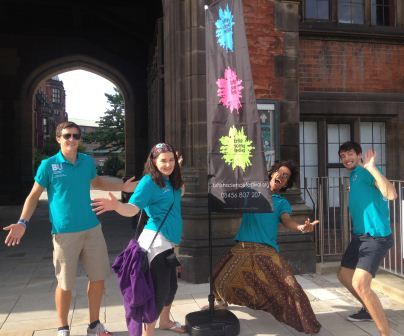

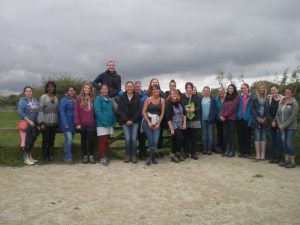


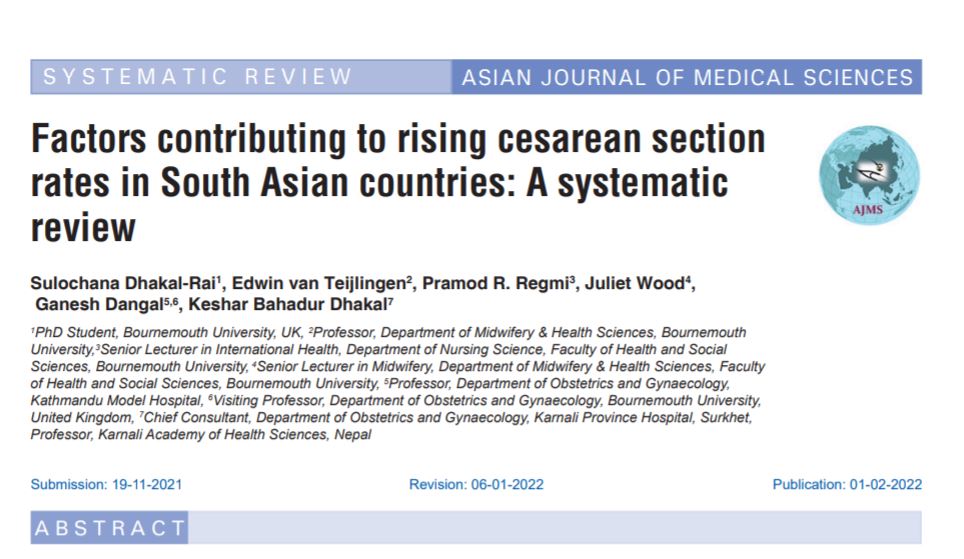 Congratulations to Bournemouth University’s PhD student Sulochana Dhakal-Rai on the publication today of the latest paper from her research thesis. This latest paper ‘
Congratulations to Bournemouth University’s PhD student Sulochana Dhakal-Rai on the publication today of the latest paper from her research thesis. This latest paper ‘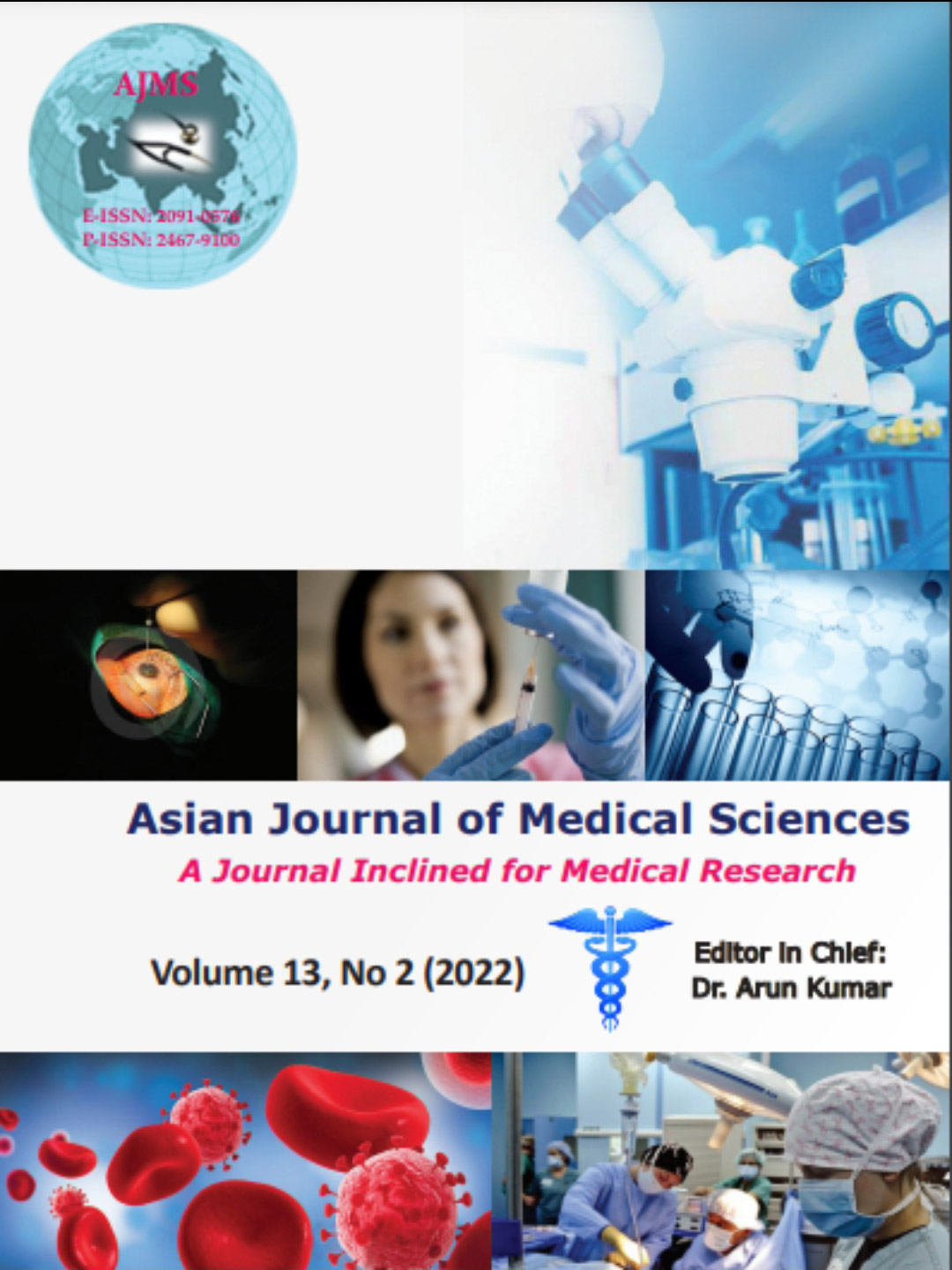 The paper is part of her PhD study of the rising CS rate in Nepal. This systematic review is co-authored with her BU PhD supervisors, Dr. Juliet Wood, Dr. Pramod Regmi and Prof. Edwin van Teijlingen as well as her Nepal-based supervisors Dr. Ganesh Dangel (FHSS Visiting Faculty) and Dr. Keshar Bahadur Dhakal. This is the sixth paper from Sulochana’s interesting and highly topical PhD thesis. The previous five were published in 2018, 2019 and 2021 [2-6].
The paper is part of her PhD study of the rising CS rate in Nepal. This systematic review is co-authored with her BU PhD supervisors, Dr. Juliet Wood, Dr. Pramod Regmi and Prof. Edwin van Teijlingen as well as her Nepal-based supervisors Dr. Ganesh Dangel (FHSS Visiting Faculty) and Dr. Keshar Bahadur Dhakal. This is the sixth paper from Sulochana’s interesting and highly topical PhD thesis. The previous five were published in 2018, 2019 and 2021 [2-6]. At Bournemouth University we collaborate with global institutions and organisations through our education, research and practice.
At Bournemouth University we collaborate with global institutions and organisations through our education, research and practice. Every BU academic has a
Every BU academic has a  By clicking on this box, on the left of the Research Blog home page just under the text ‘Funding Opportunities‘, you access a
By clicking on this box, on the left of the Research Blog home page just under the text ‘Funding Opportunities‘, you access a 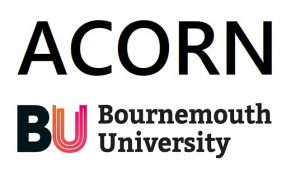 To support BU’s Early Career Researchers with the most promising talent, the ACORN Fund (Acceleration Of Research & Networking) Round 4 was announced in November 2021. This time, two options for ECRs were available – to apply for Standard Grant up to £5,000 or Large Grant up to £10,00; each applicant was allowed to only submit one proposal for Round 4. Before the closing date, 14 eligible applications were received.
To support BU’s Early Career Researchers with the most promising talent, the ACORN Fund (Acceleration Of Research & Networking) Round 4 was announced in November 2021. This time, two options for ECRs were available – to apply for Standard Grant up to £5,000 or Large Grant up to £10,00; each applicant was allowed to only submit one proposal for Round 4. Before the closing date, 14 eligible applications were received. Congratulations to all winners!
Congratulations to all winners!
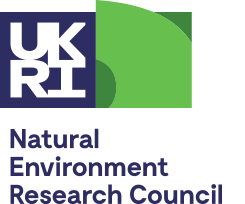











 Visiting Prof. Sujan Marahatta presenting at BU
Visiting Prof. Sujan Marahatta presenting at BU 3C Event: Research Culture, Community & Can you Guess Who? Friday 20 March 1-2pm
3C Event: Research Culture, Community & Can you Guess Who? Friday 20 March 1-2pm Beyond Academia: Exploring Career Options for Early Career Researchers – Online Workshop
Beyond Academia: Exploring Career Options for Early Career Researchers – Online Workshop UKCGE Recognised Research Supervision Programme: Deadline Approaching
UKCGE Recognised Research Supervision Programme: Deadline Approaching SPROUT: From Sustainable Research to Sustainable Research Lives
SPROUT: From Sustainable Research to Sustainable Research Lives ECR Funding Open Call: Research Culture & Community Grant – Apply now
ECR Funding Open Call: Research Culture & Community Grant – Apply now ECR Funding Open Call: Research Culture & Community Grant – Application Deadline Friday 12 December
ECR Funding Open Call: Research Culture & Community Grant – Application Deadline Friday 12 December MSCA Postdoctoral Fellowships 2025 Call
MSCA Postdoctoral Fellowships 2025 Call ERC Advanced Grant 2025 Webinar
ERC Advanced Grant 2025 Webinar Update on UKRO services
Update on UKRO services European research project exploring use of ‘virtual twins’ to better manage metabolic associated fatty liver disease
European research project exploring use of ‘virtual twins’ to better manage metabolic associated fatty liver disease